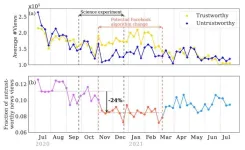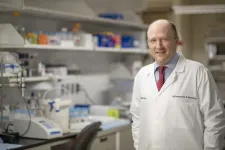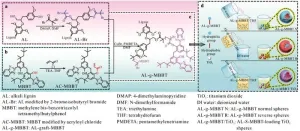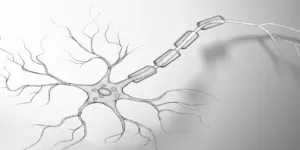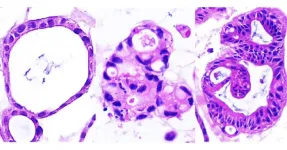(Press-News.org) AMHERST, Mass. – An interdisciplinary team of researchers led by the University of Massachusetts Amherst recently published work in the prestigious journal Science calling into question the conclusions of a widely reported study — published in Science in 2023 and funded by Meta — finding the social platform’s algorithms successfully filtered out untrustworthy news surrounding the 2020 election and were not major drivers of misinformation.
The UMass Amherst-led team’s work shows that the Meta-funded research was conducted during a short period when Meta temporarily introduced a new, more rigorous news algorithm rather than its standard one, and that the previous researchers did not account for the algorithmic change. This helped to create the misperception, widely reported by the media, that Facebook and Instagram’s news feeds are largely reliable sources of trustworthy news.
“The first thing that rang alarm bells for us” says lead author Chhandak Bagchi, a graduate student in the Manning College of Information and Computer Science at UMass Amherst, “was when we realized that the previous researchers,” Guess et al., “conducted a randomized control experiment during the same time that Facebook had made a systemic, short-term change to their news algorithm.”
Beginning around the start of November 2020, Meta introduced 63 “break glass” changes to Facebook’s news feed which were expressly designed to diminish the visibility of untrustworthy news surrounding the 2020 U.S. presidential election. These changes were successful. “We applaud Facebook for implementing the more stringent news feed algorithm,” says Przemek Grabowicz, the paper’s senior author, who recently joined University College Dublin but conducted this research at UMass Amherst’s Manning College of Information and Computer Science. Chhandak, Grabowicz and their co-authors point out that the newer algorithm cut user views of misinformation by at least 24%. However, the changes were temporary, and the news algorithm reverted to its previous practice of promoting a higher fraction of untrustworthy news in March 2021.
Guess et al.’s study ran from September 24 through December 23, and so substantially overlapped with the short window when Facebook’s news was determined by the more stringent algorithm — but the Guess et al. paper did not clarify that their data captured an exceptional moment for the social media platform. “Their paper gives the impression that the standard Facebook algorithm is good at stopping misinformation,” says Grabowicz, “which is questionable.”
Part of the problem, as Chhandak, Grabowicz, and their co-authors write, is that experiments, such as the one run by Guess et al., have to be “preregistered” — which means that Meta could have known well ahead of time what the researchers would be looking for. And yet, social media are not required to make any public notification of significant changes to their algorithms. “This can lead to situations where social media companies could conceivably change their algorithms to improve their public image if they know they are being studied,” write the authors, which include Jennifer Lundquist (professor of sociology at UMass Amherst), Monideepa Tarafdar (Charles J. Dockendorff Endowed Professor at UMass Amherst’s Isenberg School of Management), Anthony Paik (professor of sociology at UMass Amherst) and Filippo Menczer (Luddy Distinguished Professor of Informatics and Computer Science at Indiana University).
Though Meta funded and supplied 12 co-authors for Guess et al.’s study, they write that “Meta did not have the right to prepublication approval.”
“Our results show that social media companies can mitigate the spread of misinformation by modifying their algorithms but may not have financial incentives to do so,” says Paik. “A key question is whether the harms of misinformation — to individuals, the public and democracy — should be more central in their business decisions.”
More information, including Guess et al.’s original study, a copy of Chhandak et al.’s new research, and a reply from Guess at al. can be found online in the Science press package at https://www.eurekalert.org/press/scipak/.
Contacts: Przemek Grabowicz, grabowicz@cs.umass.edu
Anthony Paik, apaik@soc.umass.edu
Filippo Menczer fil@iu.edu
Daegan Miller, drmiller@umass.edu
END
Team led by UMass Amherst debunks research showing Facebook’s news-feed algorithm curbs election misinformation
Though Facebook can limit untrustworthy content, new research suggests it often chooses not to
2024-09-26
ELSE PRESS RELEASES FROM THIS DATE:
Science publishes eLetter on 2023 study by Guess et al., as well as response by Guess et al.
2024-09-26
In 2023, Science published the study, “How do social media feed algorithms affect attitudes and behavior in an election campaign?” by Andrew Guess et al. Now, Chhandak Bagchi and colleagues – in an eLetter that will appear on the 2023 study – state that the study’s “reporting and conclusions did not account for a series of temporary emergency changes to Facebook’s news feed algorithm in the wake of the 2020 U.S. presidential election that were designed to diminish the spread of voter-fraud misinformation. This issue may have led readers to misinterpret ...
Supreme Court ruling could strip protections from up to 90 million acres of US wetlands
2024-09-26
New interpretations following the recent Sackett v. Environmental Protection Agency (EPA) United States Supreme Court ruling could strip federal protections from up to 90 million acres of U.S. nontidal wetlands – nearly all that exist in the coterminous US – according to a new study. The findings reveal the potential scope and impacts of the regulatory changes and highlight the uncertainty introduced by the ruling. Enacted in 1972, the Clean Water Act (CWA) aims to restore and protect the quality of U.S. waters ...
Ancient, buried wood inspires a possible low-cost method to store carbon
2024-09-26
Inspired by an ancient buried log, researchers present a novel method to remove and store atmospheric carbon for hundreds of years or more. It involves locking woody biomass away in “wood vaults.” The approach could provide a cost-effective solution to mitigate climate change. Achieving net-zero carbon dioxide (CO2) emissions is crucial for combating climate change, yet reducing fossil fuel emissions alone is insufficient to meet the Paris Agreement's targets. To achieve these goals, carbon dioxide removal (CDR) methods must be implemented, including engineering solutions, like direct air capture, ...
Removal of marine plastic fishery debris greatly reduces entanglement threat for endangered Hawaiian monk seals
2024-09-26
Large-scale removal of discarded fishing gear and other plastic debris from the waters of Northwestern Hawaii meaningfully reduced entanglement rates of endangered Hawaiian monk seals, according to a new study. The findings, which are drawn from more than four decades of data, offer promising evidence that marine debris cleanup programs are successful and that reducing plastic inputs and scaling up removal efforts could maximize conservation outcomes across marine ecosystems worldwide. Plastic pollution severely threatens marine ecosystems, ...
Climate change likely to increase diarrheal disease hospitalizations by 2100s
2024-09-26
By 2100, hospitalizations from diarrheal diseases are predicted to increase in the city of Dhaka in Bangladesh as a result of climate change, even if global warming stays under 2 degrees Celsius. Farhana Haque and colleagues from University College London, London School of Hygiene and Tropical Medicine and icddr,b report these findings in a new study published September 26 in the open access journal PLOS Neglected Tropical Diseases.
As one of the world’s most densely population cities, Dhaka deals with a high burden of diarrheal diseases. While some studies have looked at how weather affects diarrhea in Bangladesh, few have examined the future impact of climate ...
Cleveland Clinic researchers discover new bacterium that causes gut immunodeficiency
2024-09-26
September 26, 2024, Cleveland: Cleveland Clinic researchers have discovered a new bacterium that weakens the immune system in the gut, potentially contributing to certain inflammatory and infectious gut diseases.
The team identified the bacterium, Tomasiella immunophila (T. immunophila), which plays a key role in breaking down a crucial immune component of the gut’s multi-faceted protective immune barrier.
Identifying this bacterium is the first step to developing new treatments for a variety of inflammatory and infectious gut diseases. These conditions, including inflammatory ...
Research reveals impact of gut microbiome on hormone levels in mice
2024-09-26
Francis Crick Institute press release
Under strict embargo: 19:00hrs Thursday 26 September 2024
Peer reviewed
Experimental study
Animals
Researchers at the Francis Crick Institute have shown that the balance of bacteria in the gut can influence symptoms of hypopituitarism in mice.
They also showed that aspirin was able to improve hormone deficiency symptoms in mice with this condition.
People with mutations in a gene called Sox3 develop hypopituitarism, where the pituitary gland doesn’t ...
Lignin-based sunscreen offers natural and high-performance UV protection
2024-09-26
In a significant breakthrough for the cosmetics industry, researchers have developed a new type of sunscreen using lignin, a naturally abundant polymer, and titanium dioxide (TiO2). The study, led by Yarong Li and Zhiguang Tang, was published in the Journal of Bioresources and Bioproducts and details the innovative use of a dual-modified lignin sub-microsphere to enhance the SPF and improve the color of sunscreens.
Lignin, a byproduct of the pulp industry, is known for its UV-absorbing properties and antioxidant capabilities. However, its application in commercial sunscreens has been limited due ...
How are stretch reflexes modulated during voluntary movement?
2024-09-26
How did the bodies of animals, including ours, become such fine-tuned movement machines? How vertebrates coordinate the eternal tug-o-war between involuntary reflexes and seamless voluntary movements is a mystery that Francisco Valero-Cuevas’ Lab in USC Alfred E. Mann Department of Biomedical Engineering, set out to understand. The Lab’s newest computational paper published in the Proceedings of the National Academy of Sciences (PNAS) adds to the thought leadership about the processing of sensory information and control of reflexes during voluntary movements—with implications as to how its disruption could ...
Organoids derived from gut stem cells reveal two distinct molecular subtypes of crohn’s disease
2024-09-26
Crohn’s disease — an autoimmune disorder — is characterized by chronic inflammation of the digestive tract, resulting in a slew of debilitating gastrointestinal symptoms that vary from patient to patient. Complications of the disease can destroy the gut lining, requiring repeated surgeries. The poorly understood condition, which currently has no cure and few treatment options, often strikes young people, causing significant ill-health throughout their lifetime. One barrier to making progress in developing treatments has been the lack of preclinical animal models that accurately ...
LAST 30 PRESS RELEASES:
Maternal smoking during pregnancy may be linked to higher blood pressure in children, NIH study finds
New Lund model aims to shorten the path to life-saving cell and gene therapies
Researchers create ultra-stretchable, liquid-repellent materials via laser ablation
Combining AI with OCT shows potential for detecting lipid-rich plaques in coronary arteries
SeaCast revolutionizes Mediterranean Sea forecasting with AI-powered speed and accuracy
JMIR Publications’ JMIR Bioinformatics and Biotechnology invites submissions on Bridging Data, AI, and Innovation to Transform Health
Honey bees navigate more precisely than previously thought
Air pollution may directly contribute to Alzheimer’s disease
Study finds early imaging after pediatric UTIs may do more harm than good
UC San Diego Health joins national research for maternal-fetal care
New biomarker predicts chemotherapy response in triple-negative breast cancer
Treatment algorithms featured in Brain Trauma Foundation’s update of guidelines for care of patients with penetrating traumatic brain injury
Over 40% of musicians experience tinnitus; hearing loss and hyperacusis also significantly elevated
Artificial intelligence predicts colorectal cancer risk in ulcerative colitis patients
Mayo Clinic installs first magnetic nanoparticle hyperthermia system for cancer research in the US
Calibr-Skaggs and Kainomyx launch collaboration to pioneer novel malaria treatments
JAX-NYSCF Collaborative and GSK announce collaboration to advance translational models for neurodegenerative disease research
Classifying pediatric brain tumors by liquid biopsy using artificial intelligence
Insilico Medicine initiates AI driven collaboration with leading global cancer center to identify novel targets for gastroesophageal cancers
Immunotherapy plus chemotherapy before surgery shows promise for pancreatic cancer
A “smart fluid” you can reconfigure with temperature
New research suggests myopia is driven by how we use our eyes indoors
Scientists develop first-of-its-kind antibody to block Epstein Barr virus
With the right prompts, AI chatbots analyze big data accurately
Leisure-time physical activity and cancer mortality among cancer survivors
Chronic kidney disease severity and risk of cognitive impairment
Research highlights from the first Multidisciplinary Radiopharmaceutical Therapy Symposium
New guidelines from NCCN detail fundamental differences in cancer in children compared to adults
Four NYU faculty win Sloan Foundation research fellowships
Personal perception of body movement changes when using robotic prosthetics
[Press-News.org] Team led by UMass Amherst debunks research showing Facebook’s news-feed algorithm curbs election misinformationThough Facebook can limit untrustworthy content, new research suggests it often chooses not to
